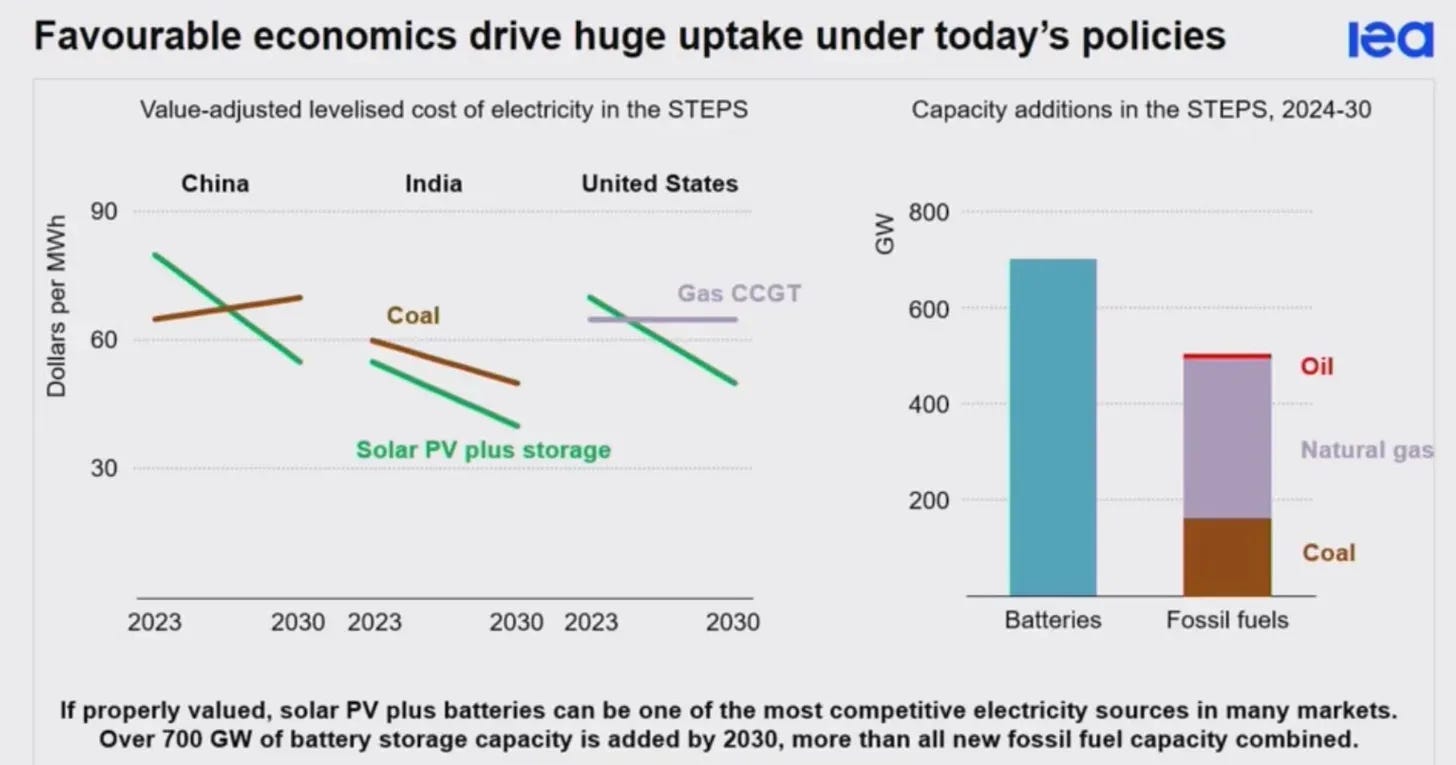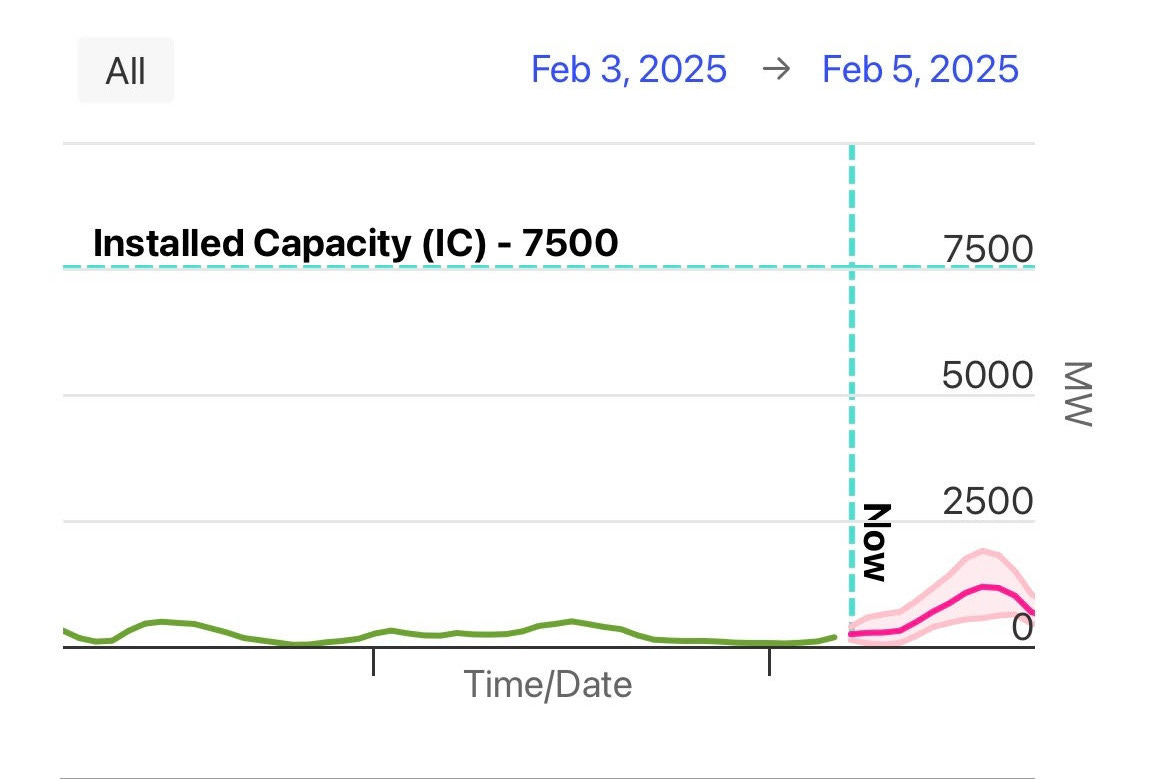The Renewable Houdini Act
Alberta's wind and solar went missing. Be on the lookout and report them to the local authorities if located!
People in his time probably thought he was a little bit mad.
In the early 1900s, Erik Weisz knew how to capture the crowd’s attention with his sensational disappearing and escape acts. Publicly known as Harry Houdini, his stunts would often involve him being restrained and confined. He even went so far as to be buried alive, only to claw his way back out of the grave in front of his live audiences. According to the Britannica Encyclopedia: “In a typical act he was shackled with chains and placed in a box that was locked, roped, and weighted. The box was submerged from a boat, to which he returned after freeing himself underwater. In another outdoor exhibition he allowed himself to be suspended, head down, about 75 feet (23 meters) above ground and then freed himself from a straitjacket. These demonstrations were typically watched by many thousands of people. Houdini’s uncanny escape abilities depended partly on his great physical strength and agility and partly on his extraordinary skill at manipulating locks.” (emphasis added).
Did I say that people thought it was a little bit crazy? Here’s a picture of Houdini, all chained up and ready to jump into the river in Boston around 1908. Yes, he survived. (Photo: Library of Congress Thurston John)
While The Great Harry Houdini is no longer with us, we still can get a front row seat to a massive disappearing act as renewables failed Alberta this winter.
Before pulling back the curtain on this fiasco, let’s set the stage.
For a long time, renewables advocates touted that Alberta had among the best in class locations for wind and solar. Here’s a screen shot from the Pembina Institute
And Canada pushed towards renewables, driven in part by generous Federal Tax Credits and Federal grants, and yes, the carbon tax. So - naturally - Alberta became home to roughly 30%+ of the nation’s installed wind capacity.
Meanwhile, renewable development was heavily backed by enthusiasts, including the Canadian Renewables Energy Association. If you go to their website, you can find a page of pre-made social media posts, ready for you to re-share the good green news of the great energy transition with your friends, family, strangers, and bots following your account.
With the combined pressure from the Federal government, advocacy groups, and the general hopeium around the future of green energy, for a while it seemed as if wind and solar’s dominance was inevitable.
Yet as Alberta’s wind and solar boomed, so did the political opposition over the damage to the pristine mountain views. And Alberta’s government became concerned about spoiling prime agricultural land with massive solar and wind farms and grid instability. And - here’s the big question - who will clean up the turbines when they wear out?
So in August of 2023, Alberta’s government suspended new permits for large scale wind and solar projects. The following year, Alberta lifted the suspension, but with new rules mandating that developers were on the hook for cleanup costs, establishing an “agriculture first” approach in assessing renewables projects, and adding a 35-km ‘buffer’ zone around pristine areas to protect the scenery. This buffer includes a vast, 70,000 KM area along the Rocky Mountains. While backpackers and tourist might appreciate unspoiled views of mountains, a far more pressing issue is grid reliability.
What is the grid? Here’s a basic summary:
A grid is a complex machine that delivers power to you. We usually think the grid is about electricity. And in a way it is. But in other ways, the grid isn’t really about electricity. Electricity is simply the messenger that transmits the power instantly from the generator to you the customer. If you don’t have an operating power source, electricity dies a sudden death. The grid doesn’t hold electricity - Even batteries don’t hold electricity. They take electricity from the grid, convert that electricity to chemical energy, and then store that chemical energy. When it’s time to use that battery, the chemical energy is ‘regenerated’ back into electricity.
So what’s the grid really about? The job of the grid is to operate and coordinate a giant system of machines to provide you reliable, 24/7, 365 days a year access to available generating capacity when and where you need it. It doesn’t matter how many solar panels or wind turbines you have installed, if you can’t connect to available generating capacity when you need the power, then too bad, so sad.
However, instead of viewing a grid as a whole system, renewables evangelists often focus on a fragment of the grid: the price to produce electricity when the weather is ideal. This is a fragmented view of the grid and is flawed because it compares the price of a splinter to the price of the whole thing.
Let’s take a look at a chart that made the rounds on social media last year from the IEA. It makes it look like solar + batteries will soon be cheaper than natural gas in the US. Let’s ignore all of the assumptions of what it’ll take to soon be cheaper, such as declining solar and battery costs.
What’s wrong with the picture? You can’t see it because it’s not in the picture but if you look at the details buried in the IEA report, they admit they only used 4 hours worth of battery storage to calculate the numbers.
This fragmented view of the grid assumes you only need 4 hours of storage. Plus, it assumes that solar is fairly consistent about generating the average amount of power. It doesn’t answer what to do when you go for more than 4 hours without sunshine and it doesn’t explain what to do if the sun didn’t cooperate the day before. It fails because it doesn’t view the grid as a machine that’s responsible for providing access to capacity, 24/7.
And now for the Alberta’s Houdini Act…
In Alberta this past week, Old Man Winter came for a visit. Starting January 30th, temperatures dropped steadily. By Monday morning (Feb 3), the good people in Edmonton were waking up to a chilly -29C or -20F. By around 7pm that Monday evening, it had warmed up to just around -25C or just -12.5F. This is the kind of weather where you need your grid to operate, as grid failures and blackouts could quite literally result in people freezing to death.
Yet when the cold rolled in, the wind disappeared. Wind is inherently a low-quality fuel because it’s difficult to precisely predict (and it’s very important to precisely predict wind turbine output), it can’t be controlled, and you need big machines to capture a very dispersed resource. When the wind is too slow, the turbines simply don’t turn.
Wind also has a massive disadvantage in cold areas because a wind turbine doesn’t generate much heat. When it gets extremely cold, there’s no thermal heat to keep the now brittle metals and plastics from freezing, micro-shrinking, and potentially cracking as the turbine rotates. So, wind operators have to add heaters or shut down the turbines to prevent long term, catastrophic damage.
As mentioned above, Alberta has a lot of installed wind and solar with nearly ~7500 MW of capacity installed. Of that, ~5688 MW is wind and ~1812 MW is solar. On paper, that’s a lot of capacity.
How much is that? Let’s put it in perspective. 5688 MW of wind is basically the same as having ~ 1,354 Vista 4.2MW turbines installed. These are giants, with a diameter of 136 meters (446 feet). For reference, Air Force One, the US Presidential aircraft, is ONLY ~231 feet long. So the diameter of each turbine is almost two times as long one of these…(Picture from the DOD)
So if you had 1,354 Vista 4.2 MW wind turbines, plus a lot of solar… what did all that investment buy Alberta?Out of a combined ~7500 MW of wind and solar, on Monday Feb 3 around 7pm, all of that renewable capacity generated ~ 25 MW. That’s not a typo. There aren’t any 0s behind the 25. It’s just 25. Or to put it another way, all of Alberta’s wind and solar generated at just 0.3% of capacity. In the cold bleak midwinter, virtually all of that capacity failed.
For reference, that’s a few million dollars (US) per 4.2 MW each turbine installed. And just for the fun of it, I looked up how many portable generators it would take to match all of Alberta’s wind and solar capacity at that time. Well, running at full blast, ~1250 of these Westinghouse, 20K generators would provide as much power as Alberta got that evening from all of their wind and solar. And, oh yes, all of those generators would only cost about $4.5 million (US). ~ Or the price of 1 or 2 wind turbines.
And what about battery backup? Did it help the grid? Nope. Battery output was 0.
Of course, this was the low point for renewables that week. But renewables basically bounced along the ground for roughly 2 days.
Meanwhile, Alberta’s natural gas powered plants carried virtually all of the grid’s weight during this time. And as a side note, ~5100 MWs or ~ 45% of the electricity generated during this time came from Alberta’s co-generation plants. Co-generation plants provide both heat and electricity, and they’re often associated with oil producers who use steam to ‘heat up’ tar-like bitumen underground. This steam assists the production of 1.8 million barrels a day of oil, or nearly 40% of Alberta’s total oil production. Those co-gen plants often have a gas turbine that generates electricity and the exhaust heat is used to make steam to pump underground to heat up the thick, tar-like oil. Those turbines produce massive amounts of electricity, some of that power is used for the oil production, but a significant portion is delivered to the grid.
The great irony of renewables is that the oil companies developing tar-like oil produced far more electricity than all of the wind and solar during this most recent visit from Old Man Winter.
Meanwhile in Alberta…
That’s all for now! Thank you!













Excellent. Very readable description of a technical issue. I had heard that wind turbines did not do well in extemely cold weather but now I know why.
I think the reliability problem is even worse. The grid must supply power not only 24-7, 365 but electric resource planners also determine how much generating capacity is necessary to meet the probability of losing load not more than once in ten years the so-called loss of load expectation (LOLE) reliability criterion. Current resource assessments are based on observations of the existing uncorrelated generating resources over many years that show that unplanned outages do not happen at the same time. As you showed, that is not the case for wind and solar – they are highly correlated. Resource analysis for wind and solar must account for this.
The unacknowledged problem is what planning horizon should be used for weather-dependent resources to ensure that that the grid does not run out of electric energy when it is needed the most. This probabilistic planning process will be similar to watershed planning for the hundred-year flood. Inevitably, an extreme event will exceed the planning criteria and when that happens to the electric grid there will be a catastrophic blackout.
Perhaps the biggest problem with this report, which is excellent and comprehensive, is that this is not an isolated occurrence, but becoming the norm throughout those nations that have pushed for the end of oil and gas usage. It appears that Alberta suffered through a dunkelflaute, the best word I know of, and could well suffer more. thank goodness they had alternative sources at the ready